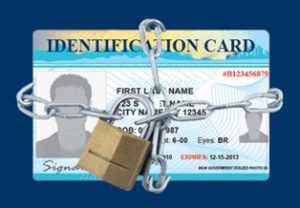During Identity Theft and Prevention Month, national nonprofit American Consumer Credit Counseling provides consumers with tips to protect their identity and critical financial information.
Boston, MA – December 4, 2015

Identity theft is the deliberate use of another person’s identity or personal information, usually to obtain financial gain. Many consumers do not know how to effectively prevent themselves from becoming victims of identity theft. American Consumer Credit Counseling is offering several tips on how to prevent and recover from identity theft during this Identity Theft and Prevention Month.
“With identity theft continuing to drastically increase across the country, it is imperative that consumers know how to prevent themselves from falling victim to this crime,” said Steve Trumble, President and CEO of American Consumer Credit Counseling, which is based in Newton, Mass. “If consumers find that their privacy has been violated, it is important to take the necessary steps to recover from the incident and secure their financial future.”
While the most common form of identity theft is stolen or misplaced items – such as credit cards, driver’s licenses and other personal information – online and internet theft is on the rise.
According to a report released by the Identity Theft Resource Center, the number of data breaches tracked in 2014 hit a record high of 783 – a dramatic 27 percent increase from 2013. In response, American Consumer Credit Counseling has created a set of tips to prevent and recover from identity theft:
- Review your online bank statements – Go through your bank statements at least once a day and make sure you recognize every transaction before paying your bill. If you see an unfamiliar purchase, contact your creditor immediately.
- Password Protection – All financial accounts should be password protected. A strong password should contain a mixture of numbers, both upper and lower case letters, special characters, and be more than eight characters in length. Avoid using predictable choices as your password and remember to change your password often.
- Secure Devices – Never leave your device visible if left unattended. Use passwords on smartphones and laptops to prevent unauthorized access to data on your devices.
- Install a Firewall – A firewall can help protect your information by acting as a traffic block. It can prevent access by unwanted visitors attempting to connect to your computer. Without a firewall, identity thieves may have access to some or all of your private information.
- Backup your data – By backing up your data, you will still have your records even if your device is stolen. Backing up your system also enables you to reboot your computer if your hard drive has been compromised.
ACCC is a 501(c)3 organization that provides free credit counseling, bankruptcy counseling, and housing counseling to consumers nationwide in need of financial literacy education and money management. For more information, contact ACCC:
- For credit counseling, call 800-769-3571
- For bankruptcy counseling, call 866-826-6924
- For housing counseling, call 866-826-7180
- Or visit us online at ConsumerCredit.com
About American Consumer Credit Counseling
American Consumer Credit Counseling (ACCC) is a nonprofit credit counseling 501(c)(3) organization dedicated to empowering consumers to achieve financial management and debt relief through education, credit counseling, and debt management solutions. ACCC provides individuals with practical debt solutions for solving financial problems and recognizes that consumers’ financial difficulties are often not the result of poor spending habits, but more frequently from extenuating circumstances beyond their control. As one of the nation’s leading providers of financial education and credit counseling services, ACCC’s certified credit advisors work with consumers to help them determine the best plan of action to get out of debt and regain financial stability. ACCC holds an A+ rating with the Better Business Bureau and is a member of the National Foundation for Credit Counseling® (NFCC®) and the Association of Independent Consumer Credit Counseling Agencies. For more information or to access free financial education resources, log on to ConsumerCredit.com or visit TalkingCentsBlog.com.

